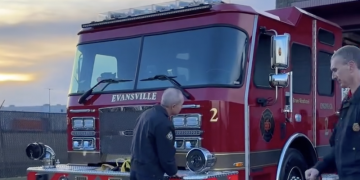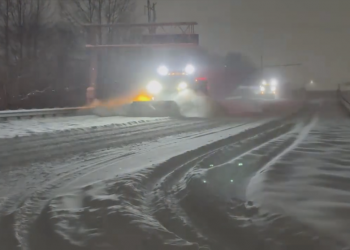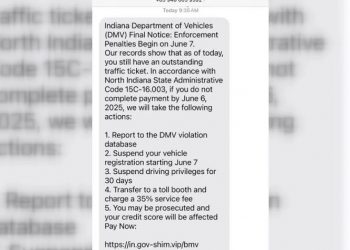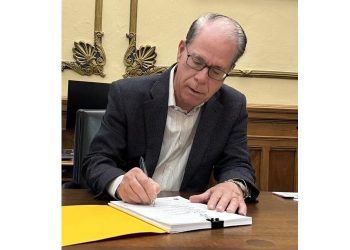Indianapolis, Indiana – The bipartisan infrastructure package granted federal cash to the Indiana Department of Transportation, which is utilizing it to prepare to increase the state’s network of electric vehicle chargers.
All Hoosiers would be within 40 miles of a public charging station thanks to the $100 million expansion, which the White House approved this week, according to INDOT.
Although state officials believe it’s just the beginning of efforts to build the charging network, the strategy focuses on interstates and key routes.
Kevin Whited, an Indianapolis resident who has been driving an electric car for almost three years, usually charges his vehicle at home but has experienced a few near misses while on the road.
“One soccer tournament, I was going to Evansville, I rolled into the hotel that had a charger and I got a low propulsion light,” Whited said. “So I was probably down to 1 or 2%.”
That is what the federal infrastructure law, which is supported by both parties, wants to avoid. States will receive cash to erect charging stations every 50 miles along key highways and interstates, a mile from an exit.
Natalie Garrett, a spokeswoman for INDOT, said that the agency is still determining the specifics of the proposal, such as who would construct the charging stations and where.
According to Garrett, Indiana currently has more than 300 public charging stations, and the new plan would add more than 40.
According to Kaylee May of Greater Indiana Clean Cities, local roads also require more of these chargers.
“We’re going to need more charging stations for people who are in multi-unit dwellings, places where they don’t have a garage, they’re off-street parking,” May said.
Many people in Indiana say they think the plan would encourage the use of more electric vehicles, but some think INDOT has to do more to make sure that all towns will benefit.
“Is it on Black-owned property or ethnically-diverse property whereas that particular property owner could benefit from the potential revenue?” said Denise Abdul-Rahman, who oversees environmental issues for the Indiana NAACP and belongs to an advocacy group focused on the issue, the Indiana Alliance for Equity, Diversity, and Inclusion for Electric Vehicle Infrastructure and Economic Opportunities.
The alliance and INDOT will meet for a third time next month.
“There will be ongoing opportunities to make adjustments to the plan as we advance,” Garrett said. “We will continue to listen to all voices as we implement the NEVI program and deploy EV charging infrastructure.”
According to Garrett, work on the charging stations is scheduled to begin in 2024.




















































































